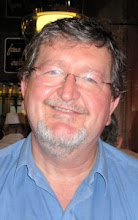BBC NEWS | Education | The dead parrot curriculum
When Boston said, "the traditional approach to covering the syllabus has been exhausted" this does indeed signal a victory for child-centred education, not because the 'progressives' won the argument - anyone would be hard pressed to identify them these days anyway - but because a lot of pupils were turned off the 'traditional approach'. For many - about 25-30%, the same proportion more or less that so exercised Sir Keith Joseph in the 1970s - the curriculum was uninteresting and demotivating so the wheel turns and it is back to 'relevance'. This was excoriated by the Black Paper writers in the early 1970s who associated it with Dewey and social breakdown.
The French sociologist, Bourdieu argued that from the point of view of social reproduction, curriculum content was largely irrelevant as long as it enabled selection to take place. This makes the arguments about whether Churchill should be included or not, seem futile but it is the symbolism, what Churchill signifies that makes it such an important element in the debate. Again, it was Bourdieu who pointed out the significance of symbolic power and politics.
This does indeed, as Baker writes, look as if it gives personalised learning some substance or if you prefer, differentiation and something like Bantock's 'dual curriculum' - cooking for the lower streams while the top stream does advanced calculus. John White's argument for a national curriculum with an entitlement guaranteed to all was opposed to this and to what R. H. Tawney insisted was necessary 'variety' in schooling. The problem was that the National Curriculum did not follow White's suggestions - probably because they were too costly - but, in general, treated unequals equally and did not, as we used to say, 'individualise', the curriculum. Mike Baker's teacher autonomy/professionalisation point is well made. When payment by results was abandoned nothing much changed as teachers had been socialised into relying on it and they will still subject to inspection and an assessment regime that kept much of it in place after it had officially gone. The same holds for today's teacher trainers, I fear, though anything that increases teachers' professional discretion is to be welcomed.
Finally, we can now brush down the old nineteenth century Froebelian texts on 'correlation' or Kilpatrick's project method which was promoted in the 1920s as essential to survival in a modern industrial world.
BBC NEWS | Education | The dead parrot curriculum

